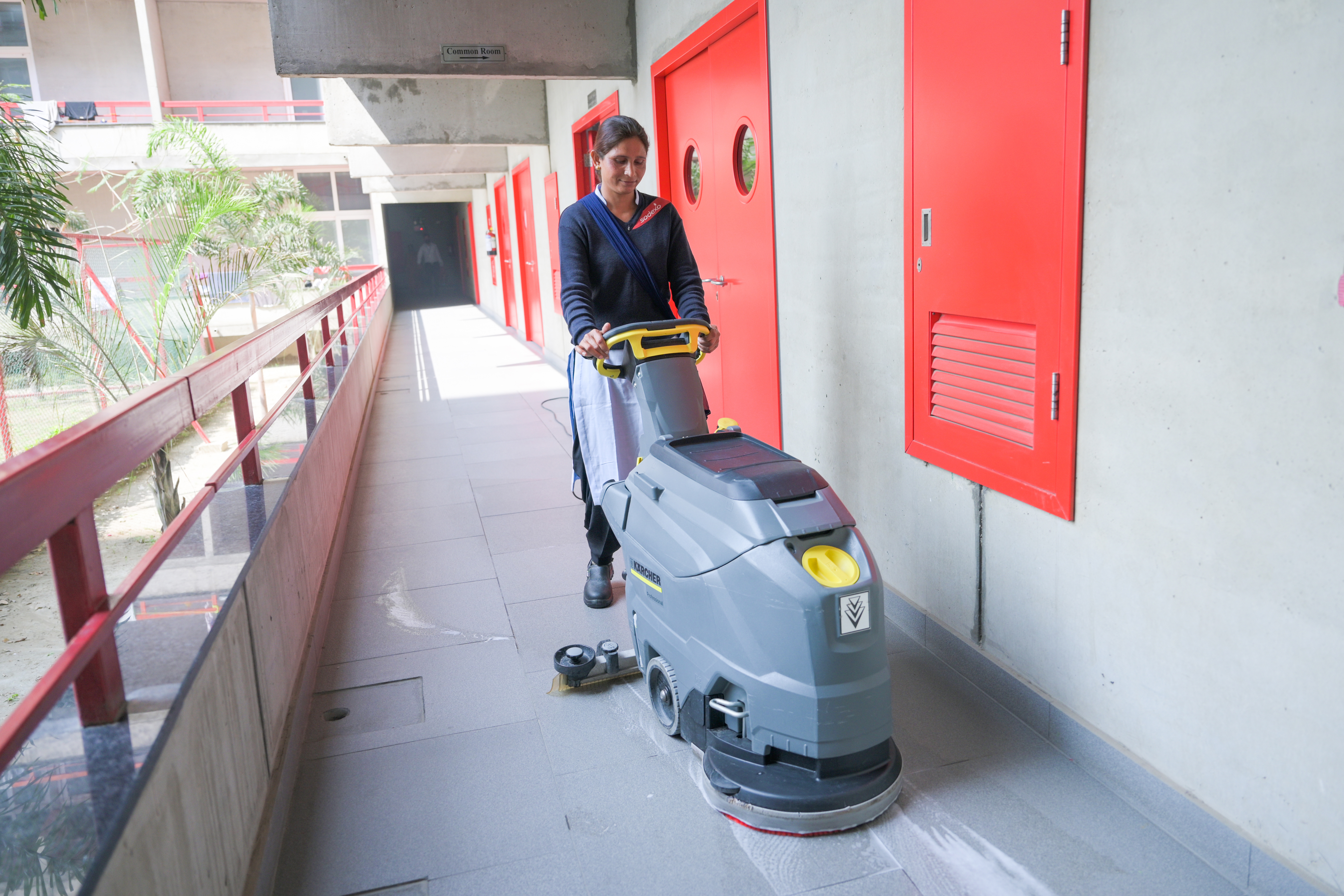The pandemic disrupted business dynamics completely. Never had the cleanliness and hygiene of a workplace assumed such gigantic proportions in measuring employee experience, as in the post-Covid era. Thus, Integrated Facilities Management (IFM), that takes care of the safety and security of employees in workplaces has become a key differentiator for organizations to attract and retain talent.
IFM is no longer just about improving the performance of real estate spaces, but more about improving business performance. Here is a sneak peek of how the IFM landscape is shaping up now and what it holds for the future. In conversation are Murali Vyasarao, Director - FM Platform, Sodexo India and Pradeep Chavda, Director - Human Resources.
What, according to you, is the biggest change that is noticeable in the post-Covid era in the IFM space?
Murali Vyasarao: There is a very discernible ownership shift now in companies. Organisations are slowly graduating from associating with single-services delivery models to partnering with IFM service providers. According to a recent report by Frost and Sullivan, there is a trend towards service integration that will make IFM the fastest growing market segment, increasing its total market share from 11.2 % in 2020 to 13.5% in 2026, with a CAGR of 6.8%. On the other hand, CAGR of single-services delivery model is projected to be only 2.8%; it will be a key reason for forcing many single-service suppliers to exit the market. Consolidation in the industry is inevitable.
Does associating with IFM service providers help achieve sustainability and wellness goals in a better way?
Murali Vyasarao: Organisations are partnering with Integrated Facilities Management services providers so that they can together follow best practices in sustainability and wellness. They no longer have individual divergent goals but associate to align with each other and move forward in harmony. Energy, carbon footprint and recycling of waste and wastewater are important sustainability goals followed together by both partner companies.
The pandemic has brought the focus on healthy building standards and certifications and IFM companies can ensure regular assessment of buildings to maintain their health performance certification. Quite like LEED, WELL certification has become important now to provide assurance the health and wellness of people in organisations.
Another critical certification comes from Bureau Veritas that reviews all operational guidelines, protocols, procedures, and standards and verifies all hygiene rules are being rigorously followed in organisations; it has been successfully integrated in Sodexo. This gives the client employees a comfort that all the required process implemented are validated by a third party
How can IFM service providers benefit organisations in a comprehensive way?
 Pradeep Chavda: According to the Frost and Sullivan report, the global revenue share in 2020 stands at 69.5% for Single Services, 19.3% for Bundled Services and 11.2% for IFM service providers. Thus, FM companies are rethinking their strategies to grab a bigger share of the market. They are integrating solutions that can boost the overall productivity of the organisations. Design, comfort, safety, efficiency, sustainability, wellbeing, and staff productivity are being factored in to optimize the entire workplace.
Pradeep Chavda: According to the Frost and Sullivan report, the global revenue share in 2020 stands at 69.5% for Single Services, 19.3% for Bundled Services and 11.2% for IFM service providers. Thus, FM companies are rethinking their strategies to grab a bigger share of the market. They are integrating solutions that can boost the overall productivity of the organisations. Design, comfort, safety, efficiency, sustainability, wellbeing, and staff productivity are being factored in to optimize the entire workplace.
Organisations are also gradually realizing the benefits of partnering with IFM companies. Firstly, organisations retain a leaner model with fewer employees on their rolls. Secondly, by outsourcing activities, they can get global service providers to do the jobs, who are knowledgeable about the best practices followed across the world and thus deliver optimum quality. Thirdly, organisations can get standardized services at all their offices across the world. An office in Mumbai would get the same standard of service delivery as in Singapore or New York. These service providers will be centrally or regionally managed so that there is coherency in their services, and they provide similar experiences everywhere. Same metrics are used to monitor the standard of services everywhere.
Can technology be the future for IFM companies?
 Pradeep Chavda: The pandemic made the adoption of technology indispensable at workplaces. Contactless solutions and productivity enhancing and cost optimising solutions like Sensors to manage lighting, HVAC systems, water flow in washrooms; use of AI and IoT to manage visitor traffic; IOT solutions to monitor the regular cleaning of washrooms; apps to regulate food services in cafeteria – all became important considerations for IFM service providers to ensure the safety of people and cost effectiveness.
Pradeep Chavda: The pandemic made the adoption of technology indispensable at workplaces. Contactless solutions and productivity enhancing and cost optimising solutions like Sensors to manage lighting, HVAC systems, water flow in washrooms; use of AI and IoT to manage visitor traffic; IOT solutions to monitor the regular cleaning of washrooms; apps to regulate food services in cafeteria – all became important considerations for IFM service providers to ensure the safety of people and cost effectiveness.
However, organizations are still slow in embracing technology due to the easy availability of labour, especially in countries like India. But perspectives are changing slowly as the realization is sinking in that being technically qualified can boost the self-esteem of staff and that people will always be required to drive technology; they can never become redundant. Besides, tech-enabled services play a big role in enhancing employee experience. They can also lead to cost-effective solutions in the long run.
Find out more about...